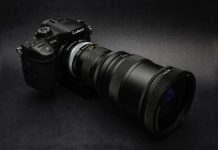Considering the level of real estate prices and its continuous growth, the construction of a frame house looks like a budgetary and realistic event. In addition, anyone who has not even held anything heavier than a mouse in his hands can do some of the work himself. However, when building a house, you need to study many questions, including how to insulate it more effectively.
In this article, the editors of "bestx.htgetrid.com/en/" have prepared an overview of the best heaters for 2020.
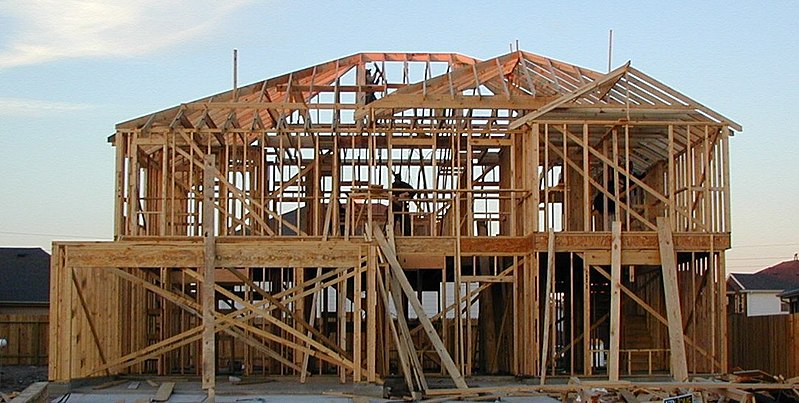
Content
What you need to know
The insulation material should be chosen before the start of construction. Mistakes of choice, like savings, can be very costly. For a frame house, this is, in fact, the only barrier from the cold.
It should be noted that more than half of such houses in our country are insulated with mineral wool or other materials based on it. Therefore, in our review we will consider mainly such heaters.
Mineral wool, first of all, is a convenient material, it is easy to transport, it is convenient to supply it to a construction site and store it, not to mention installation. It bends and is cut with any knife. In addition, it is quite environmentally friendly, lightweight and resistant to decay and pests.
What materials are used for wall insulation
Today there is a huge assortment of heaters on sale. If you are building a timber frame house, it is important for you to know about the vapor permeability coefficient (KP) of the insulation. This indicator will help you choose the most suitable material for you from all the variety. The main criterion here is to select such a heater, the vapor permeability of which is not lower than the wood used for the frame.
For the construction of frame houses in our country, coniferous wood is mainly used, and its KP can be found in the table below:
| Material | KP |
| mg / (m h Pa) | |
| Extruded polystyrene foam | 0.013 |
| Polyurethane foam | 0.05 |
| Styrofoam | 0.23 |
| Expanded clay | 0.21 |
| Pine and spruce across the grain. | 0.32 |
| Ecowool | 0.32 |
| Mineral wool density 200 | 0.49 |
| Mineral wool density 50 | 0.6 |
| Reinforced concrete with a density of 2500kg / m3 | 0.03 |
It can be seen from the table that it is generally better not to use some materials for insulation, their CP is much lower than wood, and mineral wool and ecowool are most suitable for this.
For the production of mineral wool, various compositions are used. Depending on the type of composition, its types are also distinguished:
- Stone or basalt - created mainly from rocks. This type is distinguished by its durability (does not lose its properties for more than 50 years), heat resistance (withstands heating over 1000 degrees). The insulation practically does not shrink and during the entire service period does not lose its geometric dimensions, and accordingly cold bridges will not form in the walls.
Another advantage of this cotton wool is its hydrophobicity. The water-repellent properties are due to special additives. They do not allow moisture to penetrate inside the insulation and do not accumulate condensation.
This insulation is produced in the form of slabs, which is very convenient for frame construction. The optimal density is considered to be 35 - 50 kg / m. Also, do not forget that when laying the slab should be 3-4 cm wider than the frame, this will avoid unnecessary gaps. - Glass - created on the basis of fiberglass. Its properties are similar to stone, but it is made from the same materials that are used in the production of glass.
The form of release is also different, it is produced mainly in the form of rolls of different sizes.
Often this material is opposed by the fact that during installation it produces a lot of glass dust and it is necessary to work with it only in a respirator. This also repels potential buyers. However, in practice, with proper installation and compliance with all certification conditions, glass wool is absolutely safe and does not threaten health.
Due to its lightness and springy fibers, the material holds well in the frame. For tighter styling, the material is cut into strips 15-20 cm wider. - Slag insulation - it is quite rare nowadays to be found on a construction site. This is a cheap but short-lived material. Formed during the processing of blast-furnace waste. Fragile, brittle and not environmentally friendly, a possible field of application is dumping the foundation of courtyard buildings and sewers.
- Ecowool is the most modern of the presented materials. It is made on the basis of cellulose with special additives that protect it from rotting and parasites. Exceeds mineral wool in sound absorption (more than 2 times). Resistant to high temperatures, does not emit toxic substances when ignited.
Recently, it has been increasingly used for insulating residential and non-residential premises. The material does not get wet and prevents condensation. However, there are also downsides. The first and main one - today it is one of the most expensive heaters, and it also requires additional equipment during installation.
It is worth mentioning that there are three options for installing ecowool:
- Dry - special equipment blows dry material into prepared places with the help of air, these can be attics, interfloor ceilings, as well as the inner surfaces of roofs and floors.
- Wet - Material mixed with water is sprayed onto the walls. When dry, a dense layer is obtained, which can be sewn up with finishing and decorative elements. At the same time, the cotton wool does not give any shrinkage and does not generate dust during installation.
- Adhesive - used when you need to insulate the inner surface of a metal or reinforced concrete wall. The glue increases adhesion, and due to the fact that a sufficiently dense composition is obtained, it does not require additional cladding.
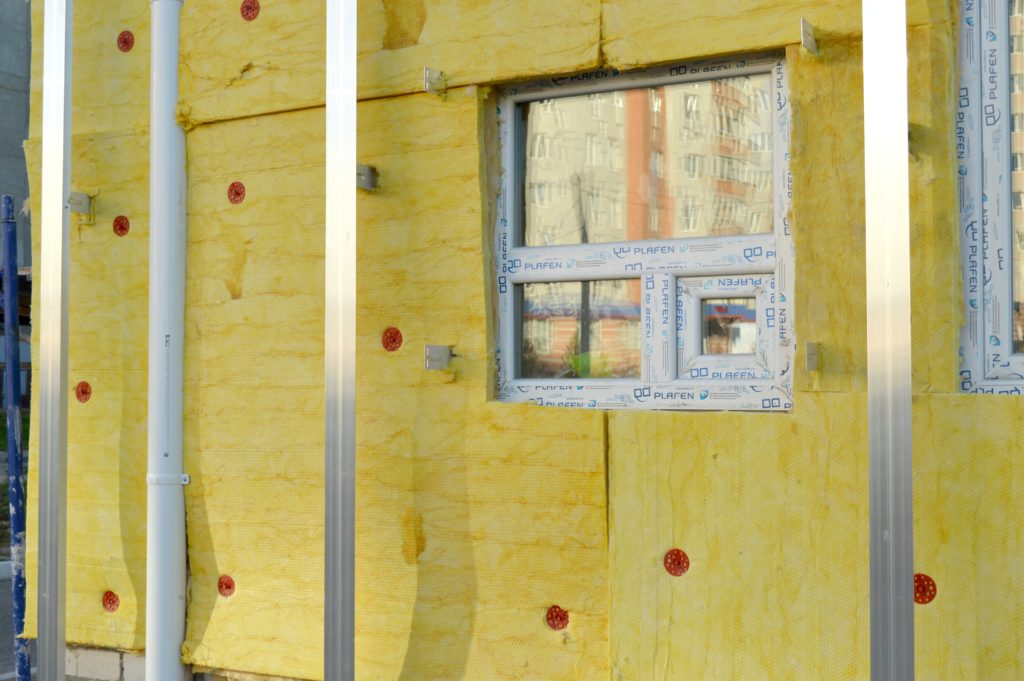
What to choose
All the materials described have their advantages and disadvantages, however, when choosing, it is also necessary to take into account the features of the room to be insulated. The complexity of installation, the availability of appropriate qualified workers. In no case should the technology of laying this or that material be violated, as this can lead to a lack of heat in your home, and much more resources may be required to find out and eliminate such flaws.
If your choice fluctuates between basalt blocks and ecowool, take into account the availability of qualified installers with special equipment, if you do not find such, it is better to use a simpler material - basalt blocks.
Wind and steam protection
No matter how hard the manufacturers of heaters try to endow their products with hydrophobic properties, no one will be able to get away from condensation, during temperature changes, from weather phenomena and other sources of dampness. In order to minimize the negative effect of dampness on the heat-saving material, vapor barrier and wind protection are used.
Vapor barrier is used to protect against moisture and vapors coming from the inside. The effectiveness of the entire insulation largely depends on the quality and correct installation of this shelter.
External protection is also important.Although it does not look impressive in appearance, all these materials together give the desired result.
The final choice of insulation will remain with the owner of the house, and in order not to be disappointed in the result obtained, it is worth studying all the main characteristics of the best insulation on the market. The right material will make your home warm and energy efficient.
Rating of the best heaters for a frame house for 2020
HeatKnauf for cottage
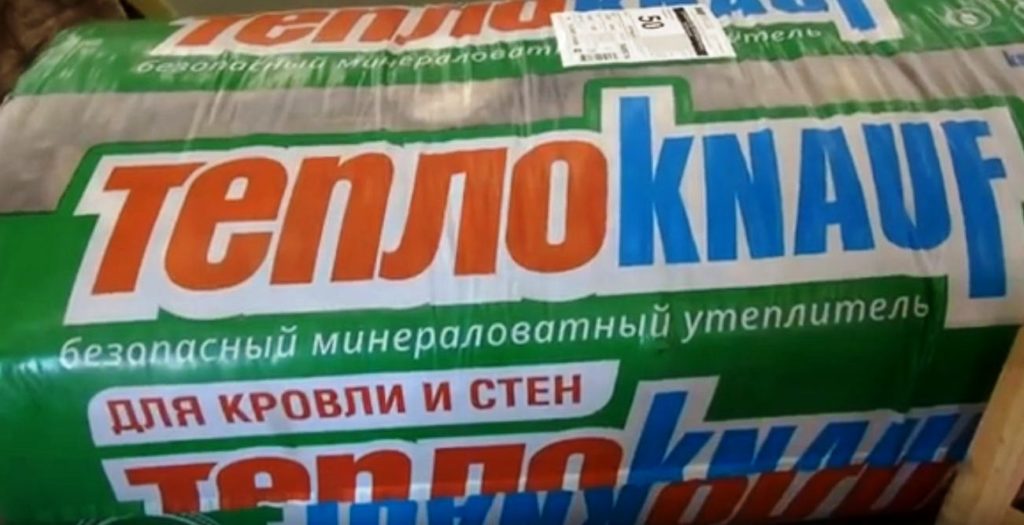
Dimensions: 1230 * 610 * 50 mm, 16 plates in the package, the package is designed for an area of 9 m2.
It is produced in the form of slabs with a thickness of 50 and 100 mm, which allows the most convenient and accurate selection of it for the required structure of the house. Suitable for protecting the house from cold and noise, it is water-repellent.
Average price: 869 rub. per packing.
Advantages:
- high quality;
- ease of installation;
- does not prick and does not produce dust.
Disadvantages:
- high price.
Rockwool Light Butts EXTRA
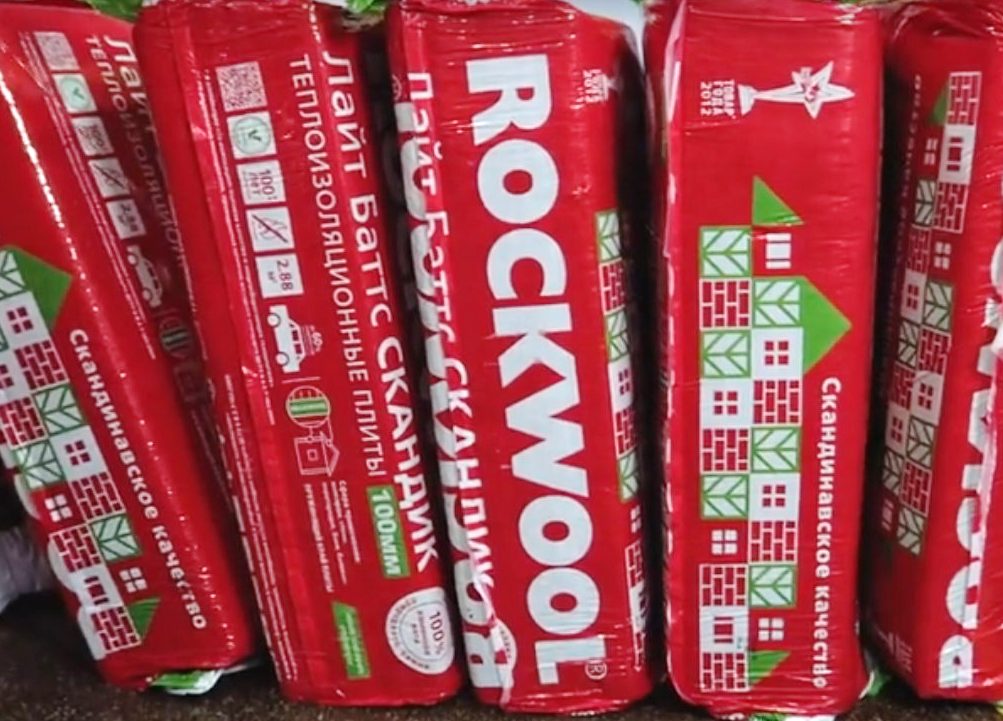
Dimensions: 1000 * 600 * 50 mm, 8 plates in the package, the package is designed for an area of 4.8 m2, density 45 kg / m3.
A universal solution for insulating a residential building, an outbuilding or a production workshop, even suitable for insulating children's and medical institutions. Made from stone wool. They have a high density. A new addition to the ROCKWOOL product line.
Average price: 530 rubles. per packing.
Advantages:
- easy to handle and stack;
- excellent insulating properties;
- does not crumble.
Disadvantages:
- does not restore its shape;
- the sheets in the package have different thicknesses.
TechnoNIKOL Technoblock Standard
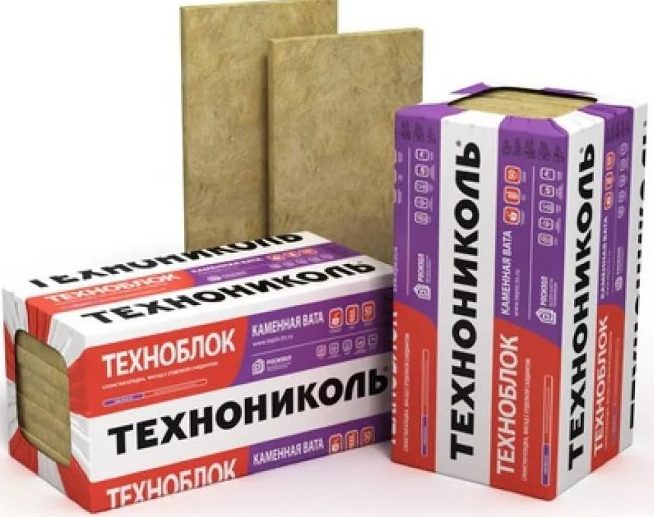
Dimensions: 1200 * 600 * 50 mm, 8 plates in the package, the package is designed for an area of 5.6 m2.
Non-flammable, hydrophobic mineral wool material based on basalt. Can be used to insulate walls of various masonry and frames with different finishes.
Average price: 640 rubles. per packing.
Advantages:
- acceptable price;
- always in stock at retail outlets.
Disadvantages:
- poor quality of packaging;
- crumbles;
- sheet have different density.
Ekrooll Extra Slab 037 aquastatik
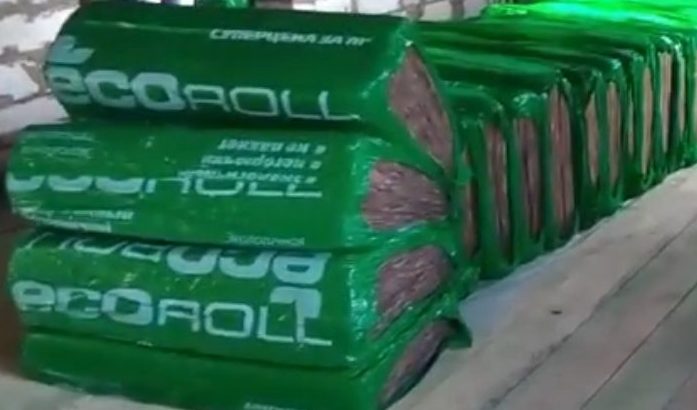
Dimensions: 1230 * 610 * 50 mm, 16 plates in the package, the package is designed for an area of 12 m2.
Russian production. The optimal combination of price and thermal conductivity of the material. It is treated with a special impregnation that allows you to cope with environmental influences, does not get wet and prevents shrinkage. Perfect for insulating attics, floors and walls. It is possible to use it as a heater for mansard rooms and roofs.
Average price: 790 rubles. per packing.
Advantages:
- price-quality ratio;
- environmentally friendly;
- easy.
Disadvantages:
- weak density;
- low sound insulation.
Isover Warm House - Stove
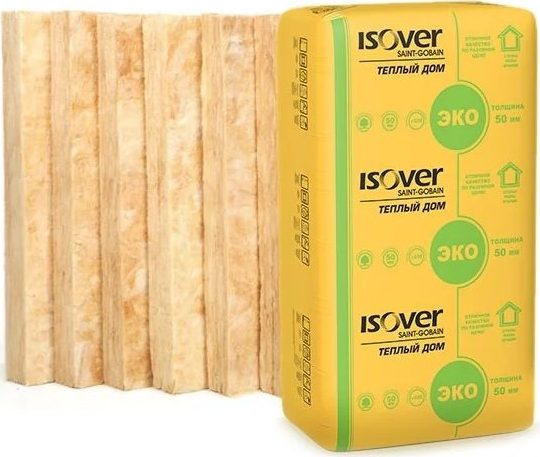
Dimensions: 1170 * 610 * 50 mm, 7 plates in the package, the package is designed for an area of 4.97 m2.
Quartz based mineral wool slab. The material contains such natural components as soda, quartz and limestone. Certified for the construction of kindergartens and hospitals. Has high performance in terms of safety for humans and the environment. Optimal for protecting living spaces from cold and noise with one product.
Average price: 700 rubles. per packing.
Advantages:
- convenient for transportation;
- easy to stack;
- good thermal insulation properties.
Disadvantages:
- afraid of moisture;
- dusty;
- you cannot work without additional protection.
IZOVOL Izobel
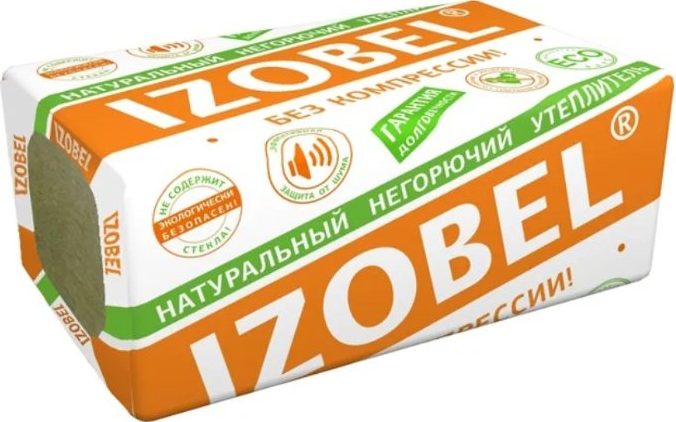
Dimensions: 1000 * 600 * 50 mm, 8 plates in the package, the package is designed for an area of 4.8 m2.
Economy class natural insulation made of basalt. Available in slabs 50, 75 and 100 mm thick. The melting point is over 1100 degrees. Compares favorably with competitors in thermal insulation properties, good sound absorption and durability. It is recommended to insulate only horizontal or inclined unloaded structures.
Average price: 365 rubles. per packing.
Advantages:
- optimal for the price;
- keeps geometry;
- durable to the touch;
- does not burn.
Disadvantages:
- difficult to cut;
- crumbles easily.
Paroc Extra
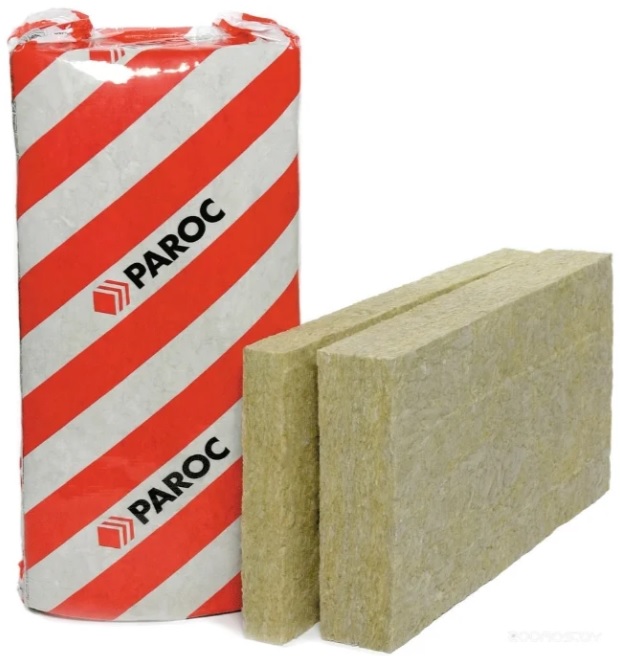
Dimensions: 1220 * 610 * 50 mm, 16 plates in the package, the package is designed for an area of 11.91 m2.
A universal building board made of basalt, able to withstand high heating temperatures. During operation, it does not lose its qualities of heat and sound insulation, and also does not lose its geometric characteristics. The density of the slab allows you to preserve the body even in the most severe winters. Recommended for insulation of walls, ceilings and interfloor ceilings in residential and non-residential premises, balconies, baths, saunas.
Average price: 1150 rubles. per packing.
Advantages:
- high quality material;
- wide range of applications.
Disadvantages:
- high price;
- requires additional protection measures.
Insulation Isomin Light
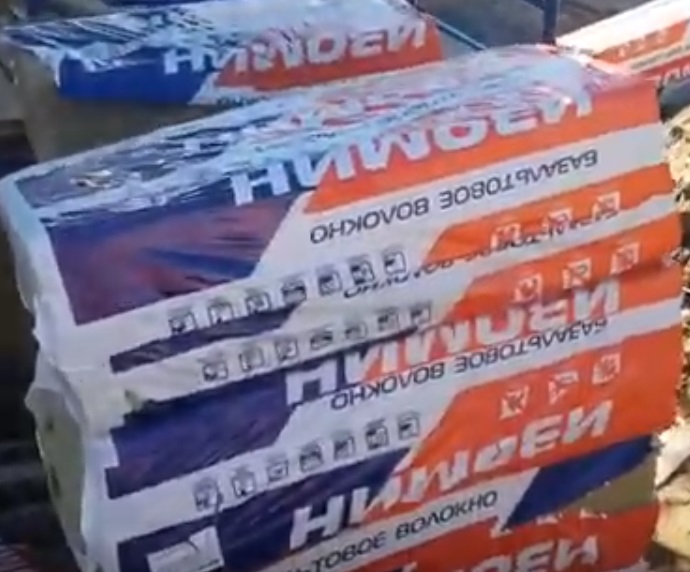
Dimensions: 1200 * 600 * 100 mm, 4 plates in the package, the package is designed for an area of 2.88 m2, density 27 kg / m3.
Mineral wool slabs, composed of basalt fiber, are made from rocks. The composition also includes additional additives that bind basalt fibers, impart hydrophobic properties and allow them to keep their shape for a long time. It is a universal insulation for non-loadable structures (floors with logs, beams, internal floors and walls). The melting temperature is above 400 degrees, the estimated service life is 50 years.
Average price: 325 rubles. per packing.
Advantages:
- long service life;
- affordable price;
- high density.
Disadvantages:
- the complexity of installation due to density;
- a rare guest in stores.
Hotrock Acoustic
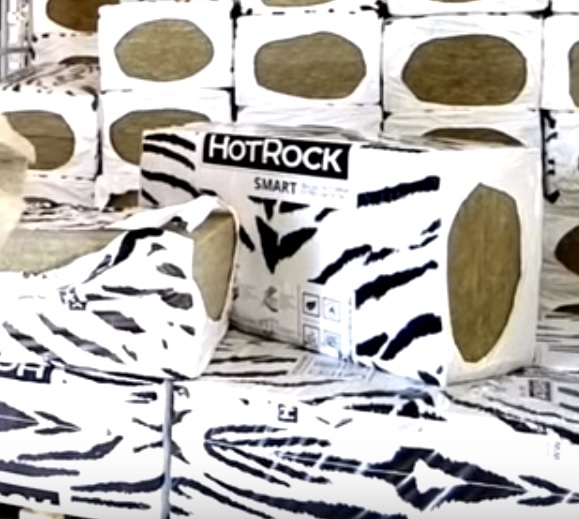
Dimensions: 1200 * 600 * 50 mm, 8 plates in the package, the package is designed for an area of 5.76 m2,
The leader in terms of sound insulation. Airborne noise protection index - 53 dB (according to the tests of the Research Institute of Building Physics). Ideal for insulating attic roofs, floors, frame walls. It is used as sound insulation for internal partitions of office, industrial and residential premises. It is produced in thicknesses of 50 and 100 mm, density - from 6 to 44 kg / m3.
Average price: 545 rubles. per packing.
Advantages:
- the leader in terms of sound insulation among all mineral insulation materials;
- very dense material;
- does not crumble.
Disadvantage:
- produced in limited quantities;
- not sold in chain stores.
Euroizol ECO 30
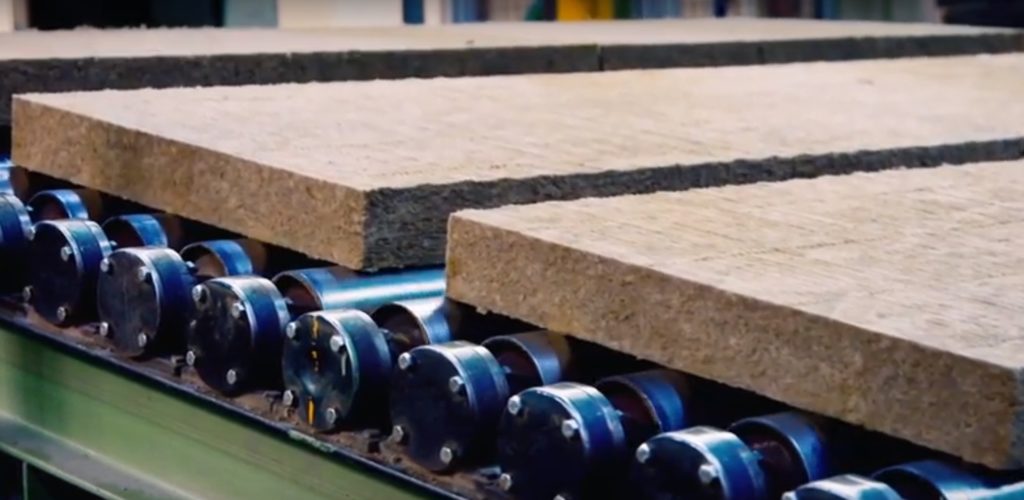
Dimensions: 1000 * 600 * 50 mm, 8 plates in the package, the package is designed for an area of 4.8 m2,
Stone basalt wool. Due to the use of modern technologies in production, it has high thermal protection and does not accumulate moisture. Due to the balanced pricing policy, the manufacturer has a competitive advantage in the market in terms of price-quality ratio. Certified for industrial and civil engineering.
Average price: 359 rubles. per packing.
Advantages:
- affordable price;
- high coefficient of thermal conductivity;
- easy to cut and assemble.
Disadvantages:
- poorly keeps the geometric shape;
- is most effective only in a horizontal position.
Ursa Terra 34 PN
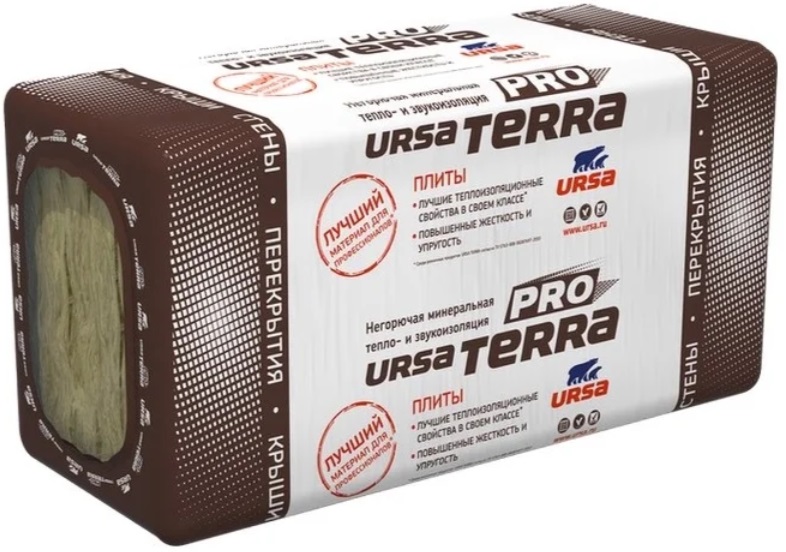
Dimensions: 1250 * 610 * 50 mm, 10 plates per pack, packing is designed for an area of 7.628 m2.
Non-combustible mineral insulation with increased elasticity and high sound absorption class. The unique Water Guard technology allows you to maintain geometric parameters even if accidentally wet. Ideal for plasterboard partitions with 600 mm spacing. Does not require fitting and cutting, as it is installed in the spacer.
Average price: 716 rubles. per packing.
Advantages:
- does not get dusty;
- keeps heat and noise perfectly;
- has no smell.
Disadvantages:
- not identified.
We hope our review will help you find the best solution for insulating your frame house. If you have experience in using this or that material, please share your opinion on its quality and ease of installation in the comments.



